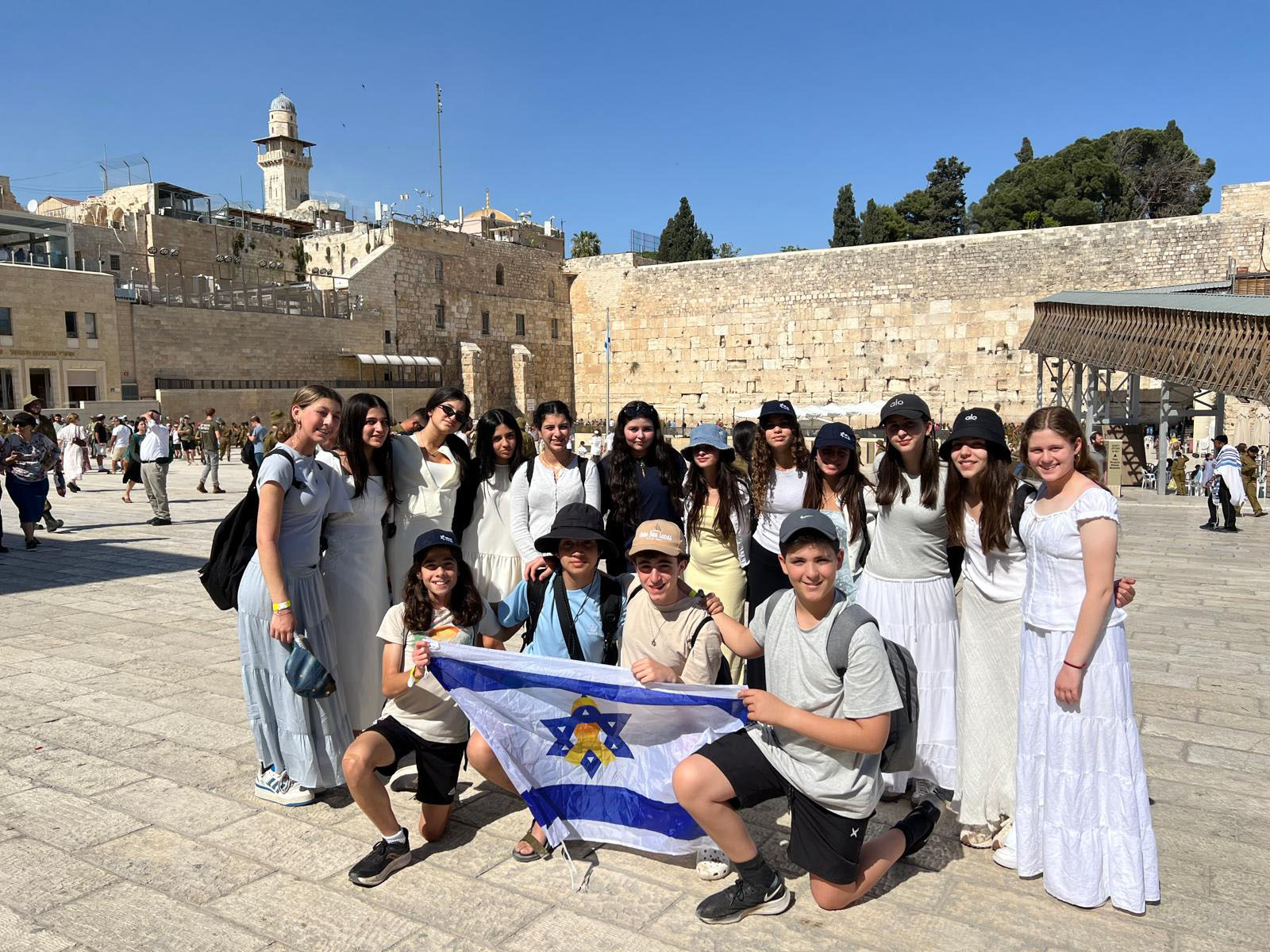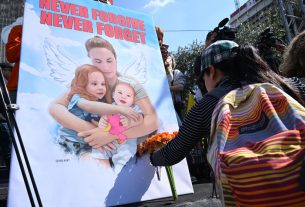It’s 2:53 a.m. I’ve woken up six times since closing my eyes at 11:00 p.m., and no—it’s not the jet lag. I know exactly what’s keeping me awake.
I’m in Israel with 16 eighth-grade students from Sinai Akiba Academy, many experiencing their ancestral homeland for the first time. We arrived with excitement, loaded our bags onto the bus, and began the drive to a kibbutz by the Kinneret.
Our guide, Hillary, welcomed us warmly. She hadn’t led a teen trip in almost two years — since the war began. Her joy at being with kids was palpable, but reality quickly set in.
“Usually, I begin by pointing out historic landmarks,” she said, her voice catching. “But today, we need to start with something else: how to stay safe.”
She asked what drills they do at school. Without hesitation, they replied: fire, earthquake, active shooter. How easily they said it — a normalized response to a horror no child should practice surviving.
Hillary explained what to do during an air raid siren. Our driver would pull over. Students must crouch low on the floor, close to a wall, hands over their heads. We wait 10 minutes for the Iron Dome to work and debris to settle before continuing.
At the kibbutz, we met Shai. “If you hear a siren, stay calm. Injuries happen when people panic. Walk quickly. Don’t run.”
Here at Deganya, we have 60 seconds to reach safety — a luxury compared to other parts of Israel. I saw it in their faces: this was becoming real. They weren’t just hearing about it anymore.
Before bed, we ensured every child knew the quickest route from their rooms to the safe room. We walked them through it calmly in the darkness.
It’s now 3 a.m., and I still haven’t slept. It’s not the time difference. It’s the weight of responsibility. I need to be first out the door if the siren wails. I need to be ready to guide them, to calm them, to protect them.
And this is just day two.
Imagine being a parent who lives like this every day — for the last 587 days. Imagine being a child who hears sirens in their sleep.
Yet despite the fear, it’s also miraculous to be here.
Imagine being a parent who lives like this every day — for the last 587 days. Imagine being a child who hears sirens in their sleep. Yet despite the fear, it’s also miraculous to be here.
We’re singing Am Yisrael Chai from jeeps climbing through the Golan Heights. We’re walking the sun-drenched streets of Tzfat. We’re breathing life back into cobblestone alleys and shuttered galleries that haven’t had visitors since the war began. We’re dancing on the Kinneret to Israeli music.
In these moments, I see these children falling in love — not just with the land and people, but with the feeling of belonging to something bigger than themselves. Something they’ve always been taught about but are now truly beginning to feel.
To witness that awakening is a privilege I’ll carry with me always.
But I won’t lie — it’s terrifying too. Not because I feel unsafe. As someone told us when we first arrived: “Welcome to the safest place in the world.” And I believe him.
What keeps me up is the weight of their parents’ trust. Unlike Israeli children, our kids have yet to experience an air raid siren. How do we protect them and help them feel safe? We can only do this if we’re awake and the first ones there!
So — is it worth it?
I see the answer forming in our students’ eyes. I see it in strangers who thank us simply for being here. We are reminding Israelis they are not alone.
I think it’s worth it. But ask me again in 10 days — when our students are safely home, wrapped in their parents’ arms.
Until then, I pray.
May it be Your will, Adonai our God and God of our ancestors, that we walk in peace, that we are guided in peace, that we return in peace.
I pray this traveler’s prayer from the deepest place in my heart — for my students. For every child in Israel who leaves for school each day and, by God’s grace, returns. For every IDF soldier defending our right to exist, and for the parents waiting by the door for their safe return. For the 58 precious souls still held captive in the tunnels of Gaza.
Tachzireinu leshalom. Bring them home. Now. In peace.
Avi Taff is the Sinai Akiba Academy School rabbi and an associate rabbi at Sinai Temple in Los Angeles




